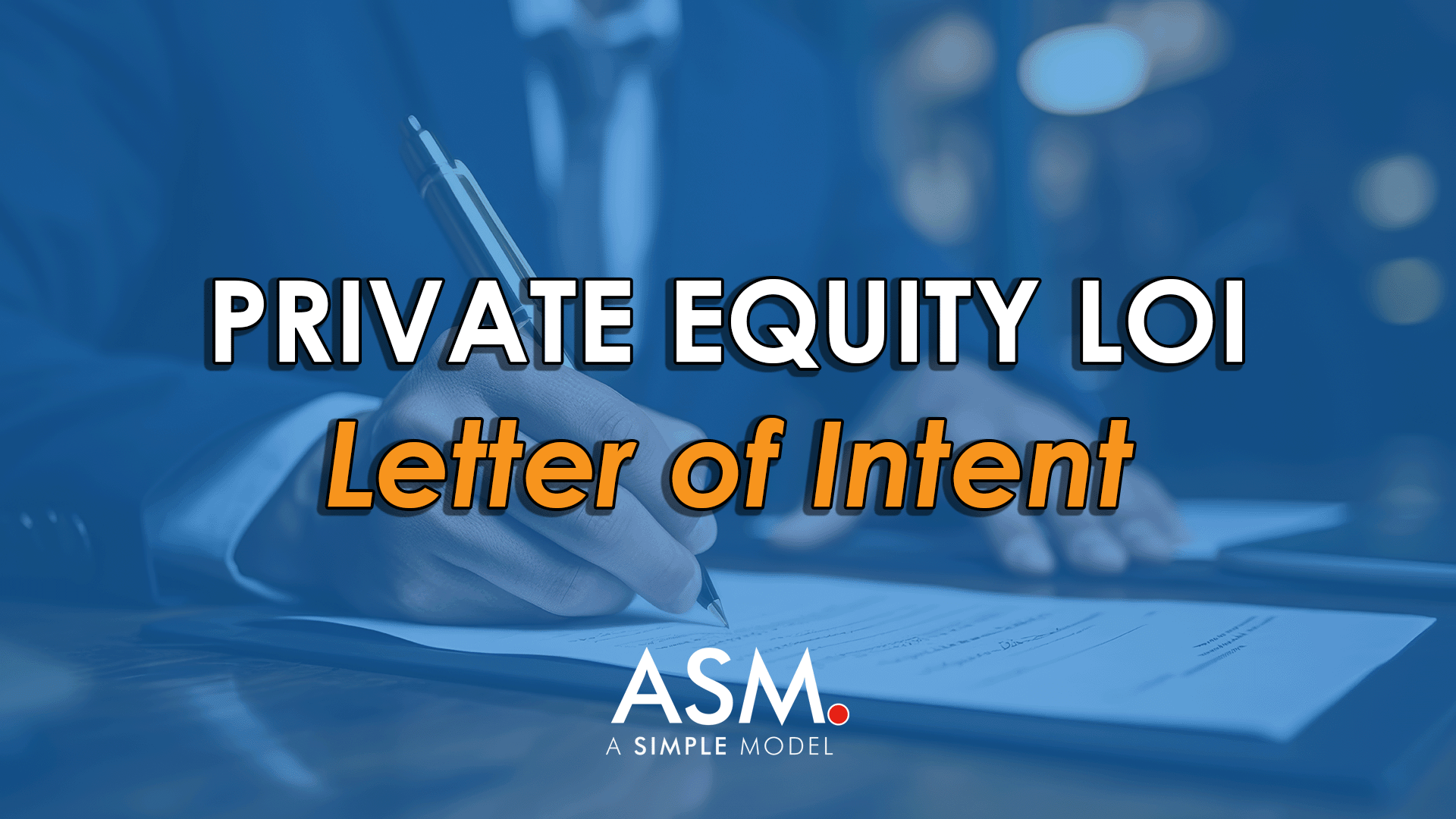
This post references an example LOI template, which is available for download (see link at the bottom of this post). The company described in the LOI is fictional.
A Letter of Intent (LOI) is a largely non-binding document entered into by the potential sellers and buyers of a company. This document helps serve as a guide for the documentation required to consummate the transaction (the “definitive agreements”). The primary objectives of the LOI are twofold:
- Establish a Value: The LOI will describe the total consideration offered to acquire the common stock or assets of the business. In the example LOI available for download you will see that the offer is made on a cash-free and debt-free basis. There is also generally an escrow (see below) and an adjustment for working capital.
- Secure Exclusivity: Once a buyer enters into a LOI, it is their responsibility to engage third party counsel to work towards a close. This is an expensive and time-consuming process. To give the buyer the confidence to proceed with this due diligence, the seller will grant exclusivity for a period of time (“exclusivity period”). During the exclusivity period the company is prohibited from discussing a potential transaction with other parties and is required to conduct its business in the ordinary course consistent with previous practices.
Beyond these two objectives, a LOI will also typically address the following:
Capital Structure
The LOI will state how the buyer intends to fund the transaction. More precisely, it will detail the amount of leverage the buyer intend to secure. This is more relevant if the sellers intend to remain with the company, and even more so if they intend to remain shareholders. More debt raises the risk profile of the business, which should make any shareholder uncomfortable.
Escrow
A portion of the total consideration (Enterprise Value) will sometimes be placed in an escrow account. The funds placed in escrow are held by a third party for a negotiated duration. If at the conclusion of this time period there are no material findings, the funds are released to the seller.
Employment Agreements
Employment agreements for key members of the management team will be detailed in the LOI on a very superficial basis. This can range from language including actual figures for salary and bonus to a mutual understanding that both buyer and seller will work towards terms that are acceptable to both parties.
Non-Compete
A buyer will typically want to secure a non-compete in an effort to prevent talented operators from competing with the business when their employment agreements terminate.
Conditions to Closing
A thorough understanding of what the buyer expects prior to close can facilitate the process and eliminate the potential for any surprises. For example, if the business requires a highly specialized facility, the buyer might want to include that they require a long-term lease prior to closing.
Indemnification
A major priority in any transaction is to reduce exposure to potential for loss. For this reason, the buyer will want to detail how they expect to be indemnified by the seller for damages related to certain items. This is accomplished via representations and warranties made in the definitive agreements.
Management Fee
Any fees that the buyer intends to charge either on an ongoing basis or at close are typically described in the LOI.
PDF of Example LOI: Letter of Intent